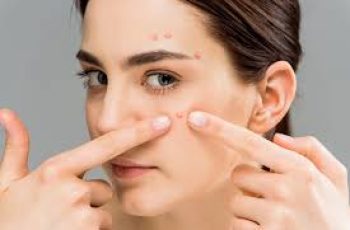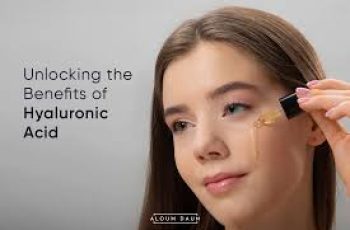
How To Use Niacinamide and Vitamin C
By now you would all know how much vitamin C collects praise within the beauty industry, the benefits it has for the skin are plentiful and it’s no surprise so many of you have introduced it into your everyday skincare routine. Not forgetting niacinamide also brings an impressive amount of hydrating benefits, naturally you would want to use both powerhouse ingredients.
But before you apply anything to your face, let me first take you through how to use niacinamide and vitamin C together, if done correct, you’ll be amazed at the results.
Is it OK to use niacinamide and vitamin C together?
Like all skincare ingredients, teaming niacinamide and vitamin C requires some time and effort to avoid any unwanted skin irritation or reactions. Increased sensitivity is often an imbalance of pH levels, yes using certain skincare products often feels a little like a chemistry lesson. But once you have established a good routine with ingredients that work well together, the result is an all-over improved complexion.
The question is, is it ok to use niacinamide and vitamin C together? Well, the short answer is yes, if applied correctly. The longer, more detailed answer is that due to both ingredients delivering similar results to the skin quite often they begin to compete often leading to irritation. To avoid this and continue using them both I would suggest opting for a vitamin C serum in your morning routine. The antioxidants properties found in vitamin C, (also known as ascorbic acid) will help combat any exposure to free radicals, such as pollution, UV rays and other environmental aggressors that can cause damage to the skin as soon as you step foot outside your door. By the time you reach your evening skincare routine, applying a niacinamide enriched serum will help counteract any damage and ensure the skin barrier receives the correct levels of water and lock moisturise into the skin surface. This will not only help any other skincare products penetrate the skin further but will help repair and replenish the skin whilst you catch up on your sleep.
Should you use niacinamide before or after vitamin C?
As I have already shared with you, to avoid increased skin sensitivity it is best to avoid using niacinamide and vitamin c together. There are some formulations of certain products that contain an impressive mixture of both ingredients allowing you to use one product. This is ideal for convenience and time saving, but your skin type plays a role in whether you can use such a potent ingredient blend.
Instead, it is a good idea to alternate when you use them in your daily routine. For example, on the mornings you’re not using vitamin C, you can switch for a product packed with niacinamide. By alternating your routine like this you will find the skin barrier remains healthy and functioning correctly whilst showing the impressive results you’ll receive when using this potent cocktail of ingredients.
How do you layer vitamin C and niacinamide?
Before layering vitamin C and niacinamide together, it is best to first perform a 24-hour patch test ensuring your skin is happy with any application. When layering these powerful ingredients applying vitamin C first and leaving about 15 minutes in between applying your niacinamide product will give the skin enough time to absorb and remain comfortable before using niacinamide to lock moisture into the skin. By layering this way, you will give the skin all the benefits of vitamin C whilst keeping the complexion plumped and hydrated with a youthful bounce.
Can I use niacinamide in the morning and vitamin C at night?
Yes, you could use niacinamide in the morning and vitamin C at night. Both ingredients are highly effective and are able to deliver impressive results whenever they are applied to the skin. Packed with antioxidants, vitamin C is the perfect active to apply in the evening as it will repair and restore any damage caused from exposure to free radicals. When it comes to applying vitamin C, it can often boil down to personal preference as many favour using serums enriched in vitamin C during their morning routine to reap the rewards of a glowing complexion throughout the day.
What should you not mix with niacinamide?
Believe it or not, vitamin C is the main ingredient that is advised to avoid when using niacinamide. This is due to the factors I have already mentioned, such as each ingredient delivering similar results to the skin resulting in an imbalance of pH levels and skin irritation being a common side effect.
If, however, you use both ingredients correctly, you’ll reap the rewards without the downside. However, if you happen to have any further concerns about how to use vitamin C and niacinamide together, you should consult with a doctor or dermatologist for added peace of mind.
Can I use niacinamide every day?
Absolutely, in fact using niacinamide twice a day will allow the skin barrier that is found on the surface and keeps the skin protected from daily environmental damage. By keeping the barrier functioning correctly you will expect to see that any signs of ageing, such as fine lines and wrinkles, sun damage such as dark spots and hyperpigmentation, and loss of elasticity.
Niacinamide contains humectant properties meaning it can draw water into the skin from the area surrounding the face and locking it into place keeping the complexion hydrated and healthy throughout the entire day. Don’t forget to check out our blog post about niacinamide and how it works on the skin to find out more.
Is niacinamide better morning or night?
Since niacinamide can be used twice a day, any time you apply this potent and clever ingredient you will reap the rewards. By keeping the skin at its healthiest state, you will find your products give you the best results with an all-over improved finish to the complexion. One additional benefit of niacinamide is its ability to regulate the skin’s natural sebum production which can control any potential flare-up in breakouts, such as spots, blackheads, and blemishes. This is another reason to use niacinamide morning and night for a balanced, healthy skin.
What should you not mix with vitamin C?
Several years ago, the only form of vitamin C used in various skincare products was notorious for being unstable often leading to flare-up in skin redness and irritation. Fast forward to modern day and skincare formulations have come a long way with vitamin C no longer carry this unstable reputation.
Bearing this in mind, there are several ingredients that are advisable to not use with vitamin C as it is still known for its potency on the skin. Here are the following ingredients that should be avoided using with vitamin C but can be used within your routine if there is enough time left in between applications, or alternating times of day you use them.
Ingredients you shouldn’t mix with vitamin C
Retinol
Benzoyl Peroxide
Alpha Hydroxy Acids (AHA)
Beta Hydroxy Acids (BHA)
If you are wanting to know more about vitamin C specifically and how it can added into your routine, check out our dedicated blog post.
So today I hope I have explained in more detail about how to use niacinamide and vitamin C together in your daily skincare routine. If you have any questions please come and find me over on Instagram.


